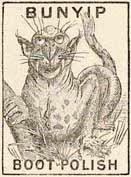SOMETIMES the caring and compassionate mind can be very hard to understand. Consider the logic, and this is but one example, of the ongoing and largely unsuccessful efforts to restrict the use of illegal drugs. Importers and wholesale dealers are seen and detested as the real villains, which is why the courts generally administer stiff sentences. As for the end users, they are punished as well, but not with anywhere near the same degree of severity. It all makes sense, right? Stern justice for criminal syndicates’ organisers, a measure of sympathetic leniency for those perceived to be their victims.
Now ponder a second species of entrepreneurial criminals who profit from another prohibition’s distortion of its market -- those who profit mightily by shipping so-called asylum seekers to Christmas Island. Everyone seems to agree the people-smuggling kingpins are, to quote Kevin Rudd, “scum of the earth” who should “rot in hell.” So far, no inconsistency. If a criminal organisation is running contraband, be it drugs or people, senior members are told they will be in quite a bit of trouble if caught.
One or two steps down culpability’s ladder, however, the current logic gets a lot murkier. Other than the anguish and uncertainty of waiting and wondering if applications for residency will be approved, there are no punishments for people smugglers' end users. There were disincentives under John Howard, mind you – the prospect of a prolonged stay in Nauru amongst them – but those were quickly dismantled by our current and compassionate PM upon her predecessor’s ascension to The Lodge. Given the good food, clean sheets, mobile phones, computer access and welfare payments that await them, few boat people would see that parcel of goodies as anything other than a reward, the worst efforts of a few media-genic roof-sitters, riot-inciters and lip-sewers not withstanding.
That is one example of cognitive dissonance, but it is not the only one. Just as an exercise, imagine you are a current or former heroin addict who hooks up fellow junkies with reliable suppliers. You pass along their names and phone numbers, rate their trustworthiness and extol the pleasure of the high they will attain once the connection is made. A legal mind might nominate several charges that could be laid against such touts, but even if no formal accusations were brought to bear it is safe to assume they would be of interest to police.
Now turn attention back to the people-smuggling racket and individuals who support it by word and deed. From the published comments of those who lost friends and loved ones in the latest leaky SIEV, it seems there are a quite a few urgers who are working from inside Australia to encourage the perilous transits of other undocumented aliens. Several are quoted in today’s newspapers, where they display detailed knowledge of would-be arrivals’ names, safety, and travel schedules. Take Sayid Abas Sultani , for example, who tells the Silly of his plan for flying to Indonesia in search of missing nephew Sayeed, who was aboard the compassionate Gillard’s latest death ship.
How did Mr Sultani, who stepped ashore just seven months ago, know of his kinsman’s pending passage unless he had been communicating with him? And if he and they were chatting or emailing or whatever, why didn’t Sultani advise his nephew of the dangers ahead and advise him not to come through the back door? True, young Sayeed might have accused his uncle of hypocrisy, as that was how he entered the country, but the answer to that would have been quite simple: Yes, nephew, I did jump the queue, but by the Prophet’s beard I am now on the fast track to full citizenship and obliged to observe, and encourage others to respect the law of the country which so kindly took me in.
Unfortunately, a presumptive sense of entitlement appears to rule out that option, as another survivor of the latest sunken SIEV explains, also to the Silly. “We will continue this way again. We will go again by boat. Let the Australian government know that,” vows Iranian Dawood Waladbegi, whose wife and kids appear to be amongst the most recently drowned. “I lost all my family members. I have no one here. I don't want this life.'' Upset as he is about his miserable lot, Waladbegi still has a life, which is no longer the case for the family members he knowingly placed in such danger.
When Waladbegi does arrive, as he surely will, it would have a prophylactic effect on the flow of future undocumented arrivals if he were to be charged with aiding and abetting the people smuggler's manslaughter. And it wouldn’t hurt if his contacts in Australia, the ones who urged him to place his family in such peril, were charged as well. If he were a heroin addict who lined up fellow addicts with dealers known to cut their wares with battery acid, there would not be a peep of complaint about his complicity being brought before the courts.
